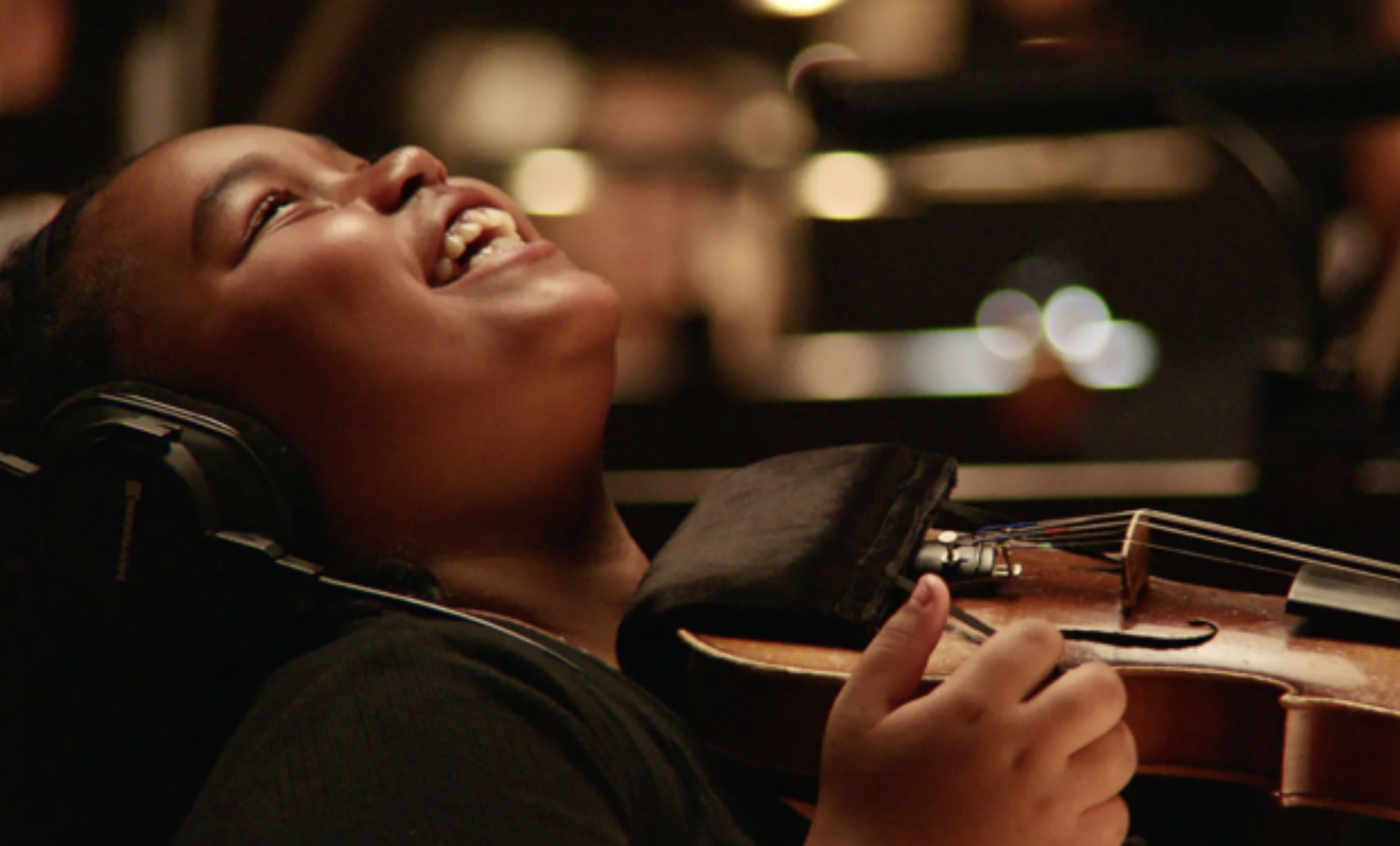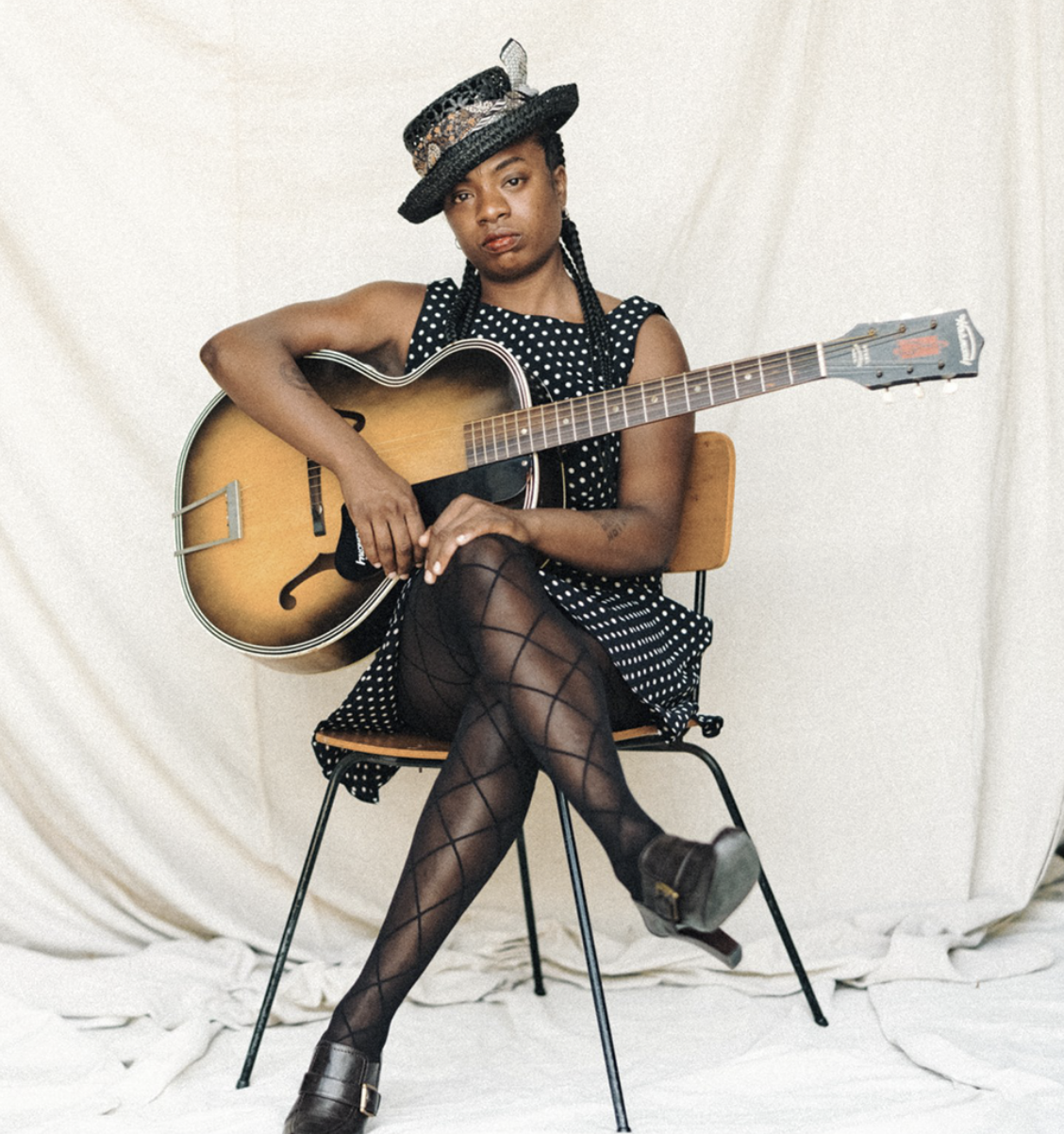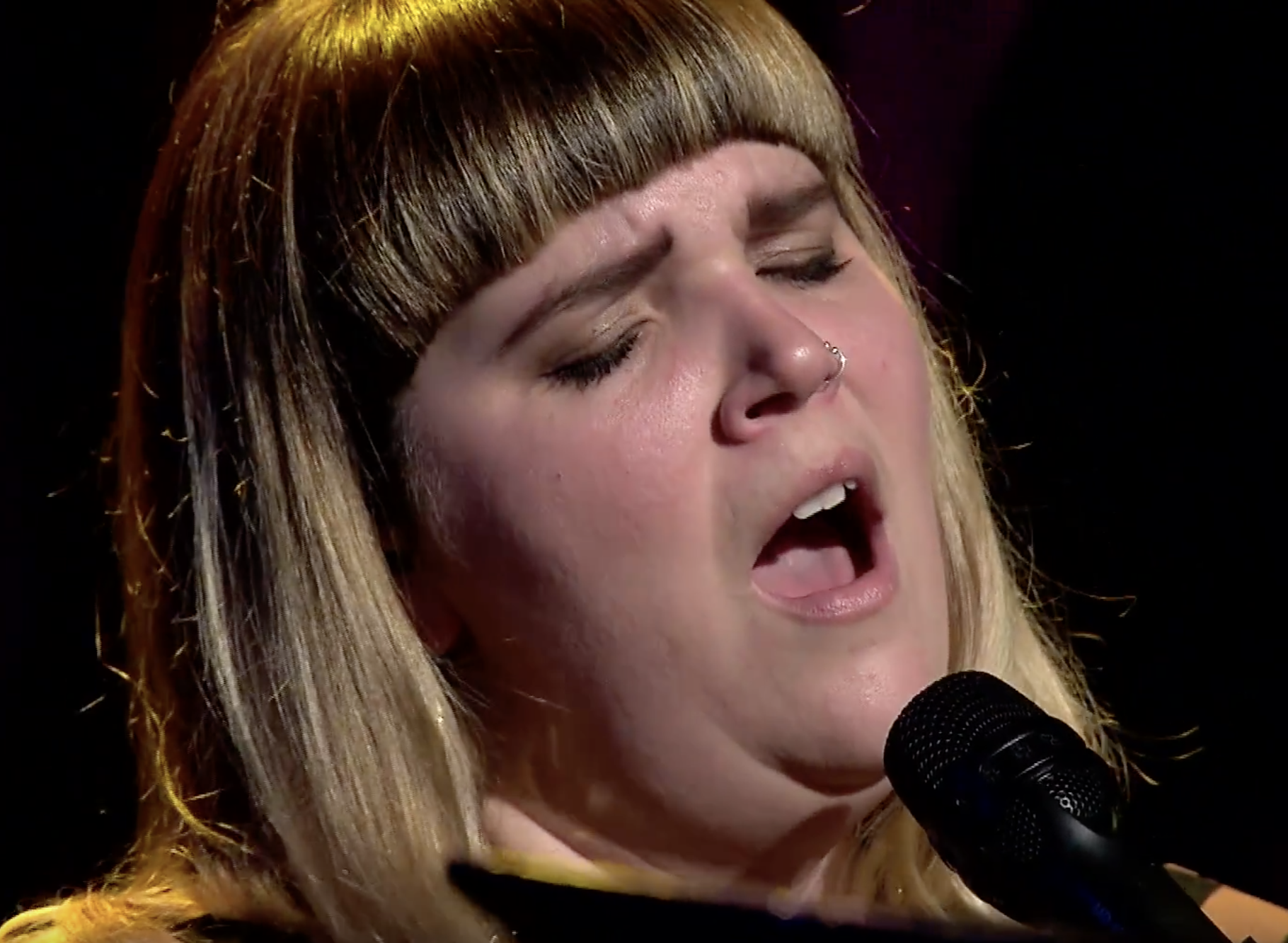Update
Since this post was published last September Meshell Ndegeocello won a second consecutive Grammy Award for Best Alternative Jazz Album last week. In 2024 she received the same prize for the newly-inaugurated category for her album The Omnichord Real Book.
This year’s award comes just in time to mark Black History Month. What a perfect album to hear this February.
~ KK/ 01 February 2025

NEW RELEASE
No More Water: The Gospel Of James Baldwin
by Meshell Ndegeocello (76 mins)
CONTENTS
NPR TINY DESK CONCERT
featuring Ndegeocello and band (24.16 mins)
PLAYLISTS
No More Water on Spotify and YouTube
LYRICS: Kurated No. 225-B
RESOURCES
More things to read and hear.
See below.

Bass player, singer-songwriter, producer, collaborative jazz player, queer Black activist – Meshell Ndegeocello is an ever evolving artist (Washington Post photo)
NO MORE WATER
Honouring the spirit of Civil Rights activist and author James Baldwin, Ndegeocello crafts a provocative and sublime musical document
For more than 30 years Meshell Ndegeocello has been a solid and dynamic musical work-in-progress. She’s a considered student of her evolving craft; the political and personal themes that underlie her life as a queer, Black artist are second nature.
Her exceptional new album No More Water: The Gospel Of James Baldwin is an ambitious and reaching document that’s been nearly 10 years in the making. It’s almost as much a literary work as it is musical. Ndegeocello (Endy-gayo-chello) says Baldwin’s writing was “life changing” for her especially the 1963 book The Fire Next Time, which is the foundation of this project. “It was just a revelation to me, and it softened my heart in so many ways,” she says.
Ndegeocello has taken that revelation through many iterations. Theatre stage shows, concerts, an educational toolkit and website all have helped refine the music and approach that’s become No More Water. Baldwin – a music lover and fan of Nina Simone, Ray Charles and others – would be pleased. He said music was the best form of communication and allowed that “the disastrously explicit medium of language” was no match for it.
Despite that assessment, Baldwin – an openly gay man in mid-century America– was revered as a leading writer of his time. He was regarded as artistically and intellectually complex; an agitator and a propagandist much loved by fellow Black writers like Toni Morrison. He kept company with luminaries like musician Miles Davis, photographer Richard Avedon and actor Marlon Brando.

James Baldwin circa 1964
The music
No More Water’s 17 selections comprise contemporary jazz pieces, ballads and spoken word. It’s complex and layered work; energetically jumping genres while also lingering on hard-to-hear truths and probing sombre spaces. It espouses a critical world view that examines Black reality in America. It refers to the deeply personal and political – discrimination, societal abuse, violence and oppression. To make meaning through words and music from such raw matters calls on more than courage and heart. It requires translation by musicians with lived experience. Ndegeocello has that; so do many of her collaborators. She is studied and grounded in the lessons learned from Baldwin and other mentors like Audre Lorde.
The music is made in the collaborative jazz spirit that colours Ndegeocello’s recent work. This includes last year’s Grammy Award-winning The Omnichord Real Book which won the inaugural award for Best Alternative Jazz Album. No More Water’s 12 players take turns on vocals; the inventive arrangements range from rich and intricately rhythmic to spare and measured. The feeling is spacious; there’s room for gospel, neo-soul, samba, dub, soukous – with generous blasts of funk and groove; even a touch of folk. Ndegeocello’s skilful songwriting – and the unmistakable punch of her bass – brings the collection to excellence.
Four evocative spoken word pieces dramatically punctuate the record’s flow. Two use Baldwin’s words – Baldwin Manifestos 1 and 2. The others are Raise the Roof and Tsunami Rising – performed by prominent Jamaican poet Stacyann Chin.
It’s a credit to producers Ndegeocello and Chris Bruce for fashioning such a cohesive sound from the sometimes abrupt emotional highs and lows in the album’s lyrics and music. Each jarring spoken word piece leads to a thoughtful follow-up song that readjusts our listening.

Audre Lorde (Robert Alexander photo)
The words: past, present and future
Baldwin’s words appear on almost half the tracks – in the spoken word pieces as well as in various songs. His writing remains relevant today with its insights into systemic racism and social injustice. However, in No More Water, Ndegeocello is charting history in real time. She draws a throughline from Baldwin’s work to current day movements Black Lives Matter and #MeToo. To underline the relevance of the narrative she’s recruited contemporary figures. The revered writer, academic and late Black feminist Audre Lorde is among them. “We were constantly thinking that there is some feminine energy sometimes missing from Baldwin,” Ndegeocello told Rolling Stone last month. “So that’s why Audre Lorde is in there. We are not single-issue beings, so we just tried to carry on his thoughts with new voices.”
Ndegeocello’s comment is a diplomatic understatement. She overlooks a well known disagreement between Baldwin and Lorde during a public conversation in 1984 and published in Essence magazine about the difference between racial and gendered histories among Blacks. Lorde argued that Black women had more difficulty in America than Black men. Not only did they have to contend with white racism but also chauvinism and violence from their Black counterparts.
Other contemporary voices on the album include poet Chin and Pulitzer Prize-winning author and Baldwin expert Hilton Als who both riff and expand on Baldwin’s thinking.
In Raise the Roof Chin’s blistering commentary starts:
“It must be in the fucking water being force-fed to the police, the prosecutor and the politicians who care nothing for Black bodies falling like leaves in late August…in Ferguson…in Cleveland…in Staten Island, only minutes away from where my own child sits, watching The Muppets take over Manhattan.”
In Tsunami Rising she blends her words with Baldwin’s, ending with a powerful statement of intent from the book of the same name, The Fire Next Time:
If you want to be free like Harriet Tubman, weapon in hand, waiting for unfriendly waters, her power compelling the freedom of even those who did not want to be free. If you desire to be confrontational like Sojourner Truth, if you wish to be audacious like Audre Lorde, antagonistic like Angela Davis, gangsta like Winnie Mandela, angry like Assata Shakur. Come roar with us in the corner, sit beside us in schools, chant with us in church, vote with us and for us at the polls, travel with us in public, in the virtual, in the flesh, over these waters they have used against us as weapons across the lands of this rock we all call home
Let us use our fire to crack this ground wide open with an uprising that they have never seen before, that they will never see again, that will never ever die down
No more water, the fire next time. No more water. The fire next time
Wanna say, No more water. Give me the fire next time

Stacyann Chin (Instagram photo)
Holding both
No More Water: The Gospel Of James Baldwin is a heartfelt statement of truth telling and an expression of justified Black rage. It’s at once a work of deep insight and beauty while laying bare the ugliness of hate. It holds both.
The subtitle refers to Baldwin’s religious upbringing. In their own way the songs and spoken word pieces act as sermons and laments. Rather than proselytizing for religion they expose hypocrisy and forcefully preach for justice. The album’s closing song, Down At The Cross, poses the question, When I leave / Will it be better / Once you leave/ There’s no turning back/ No coming back / Once you leave / Will it be better.
Ndegeocello and Baldwin leave us to ponder this existential question. Perhaps its answer is in their words; perhaps in the music. Listen…
Resources: read and hear

NPR Tiny Desk Concert: Ndegeoceollo and her band played a 24-minute concert of five songs at the NPR office in June. The songs serve as an easy and joyous introduction to their sound. The first three tunes are from the new album.
Essay: An Appreciation of James Baldwin: Dear Jimmy:
by Vancouver writer Colin Thomas / Fresh Sheet
Interview: Rolling Stone: Meshell Ndegeocello’s Jazz Renaissance
Reviews: Allmusic.com, The Guardian, The Observer, Blue Note Records essay
Videos:
Spoken word: Tsunami Rising by StaceyAnn Chin
Trouble, live band performance (6.44 mins)
Complete Album Lyrics:
Kurated No. 225-B

7 September 2024

PLAYLISTS
On Spotify
On YouTube
https://music.youtube.com/browse/VLPLG-pRIXeCU7fT93tmR65eihqc_wsVDkL_





